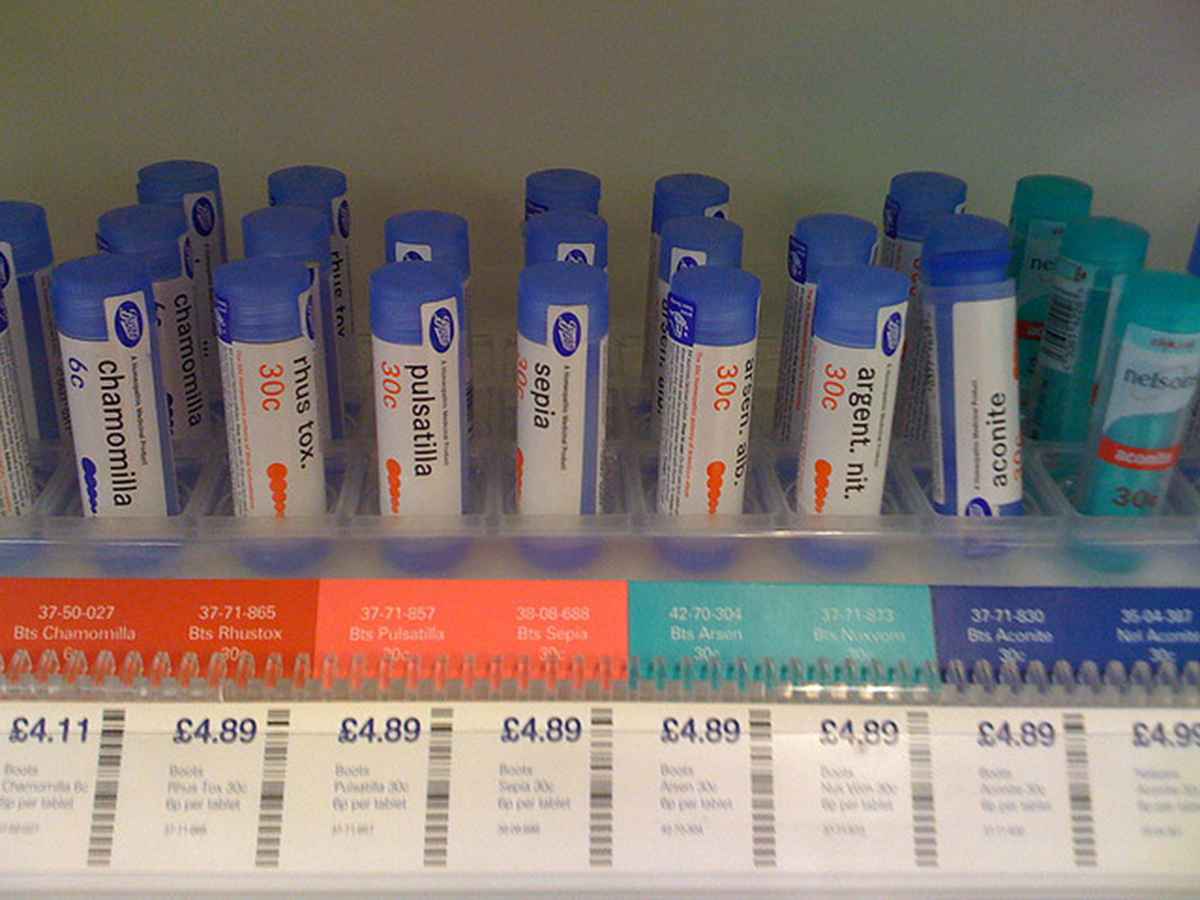Table of Contents
Another explanation of how homeopathy works is that the water in which homeopathic remedies are dissolved changes its structure so that it “remembers” the remedy even after the remedy has been diluted so many times that not even a single molecule is likely to remain. Heating the homeopathic remedy, however, disrupts the structure of water so that it “forgets” the remedy.
No fewer than 12 published, positive studies have confirmed a model of homeopathy measured by the activation of a kind of white blood cell known as the basophil. The homeopathic dilution of Apis mellifica (honeybee sting) has been found to inhibit the release of histamine, the chemical that causes allergic reactions, from these white blood cells. Interestingly, there are peaks and troughs of homeopathic effect at different dilutions. Diluting the honeybee material one time may make it less effective, but diluting it again may make it more effective, then diluting it a third time may make it less effective, and so on. The original experiment in this line of research was conducted by the late French medical scientist Jacques Benveniste, who also developed a technique of sending homeopathic signals over the Internet to treat patients in Africa from his offices in Paris. (I personally witnessed this in Dr. Benveniste's office in 2000. I was entirely skeptical, until I later met his patients.)

The mechanism of homeopathy has also been explained in terms of hormesis, the activation of a biological system with a small stimulus after stress. It has been explained in terms of nanobubbles, changes in the distribution of electrical charges in water, particulate silicates dissolved from the glass making up the containers in which the remedies are mixed, and atmospheric changes causing changes in the air bubbles in the container while the remedies are mixed.
There is to date no single, definitive explanation of why homeopathy in general should be effective. The fundamental question of how it is that highly diluted mixtures can have effects in living beings remains unanswered. But in addition to this fundamental question, there are six other nagging questions that keep homeopathy from mainstream acceptance.
READ The Truth About Homeopathy: What's Weaker Doesn't Make You Stronger
- What biological processes are activated in the healing process of homeopathy?
- Are the benefits of homeopathy attributable to the charisma of the homeopath or a placebo effect?
- Do homeopathic substances cure syndromes similar to those they cause in higher doses (or, in some cases, in lower doses, dilution not always being beneficial, as is the case with homeopathic Aspirin)?
- Is homeopathy cost-effective?
- Is homeopathy safe?
- Can the traditional system of “proofings” with healthy volunteers (making them sick with the homeopathic remedy that makes sick people healthy) really shed light on how homeopathy works in sick people?
These are, of course, all legitimate questions. Homeopathy will never be fully accepted until they can be answered. In the meantime, however, many homeopathy fans will argue "If it works, use it," feeling better even if they do not quite know why.
- Lauche R, Cramer H, Häuser W, Dobos G, Langhorst J. A Systematic Overview of Reviews for Complementary and Alternative Therapies in the Treatment of the Fibromyalgia Syndrome.Evid Based Complement Alternat Med. 2015.2015:610615. doi: 10.1155/2015/610615. Epub 2015 Jul 13. Review.
- PMID: 26246841
- Photo courtesy of y oonaghs_eye: www.flickr.com/photos/40853856@N03/3940580365/
- Photo courtesy of distillated: www.flickr.com/photos/distillated/3501378546/

